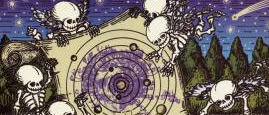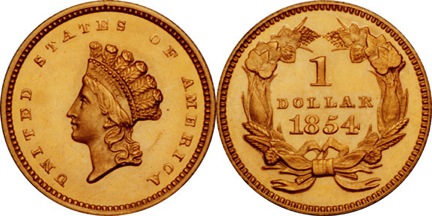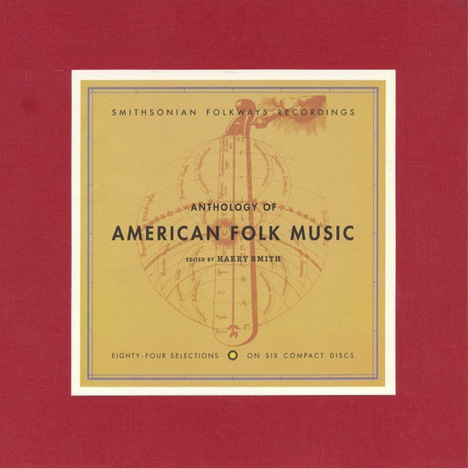By David Dodd
Here’s the plan—each week, I will blog about a different song, focusing, usually, on the lyrics, but also on some other aspects of the song, including its overall impact—a truly subjective thing. Therefore, the best part, I would hope, would not be anything in particular that I might have to say, but rather, the conversation that may happen via the comments over the course of time—and since all the posts will stay up, you can feel free to weigh in any time on any of the songs! With Grateful Dead lyrics, there’s always a new and different take on what they bring up for each listener, it seems. (I’ll consider requests for particular songs—just private message me!)
I am grateful to have received, recently, a somewhat indignant email from a reader of this column, taking me to task for having “overlooked” “Loser.”
It’s true — I haven’t yet written about the song. But I would point out that there are dozens of songs which have yet to be the topic of a “Greatest Stories Ever Told” post, and that I have taken anything but a disciplined approach to the material.
Early on, I tried to follow the rough patterning of a show, in which Jerry tunes would alternate with Bobby’s or other composers’ tunes, and until recently, that seemed to work. However, I am now finding myself running short of songs to rotate in between Garcia selections. Increasingly, there will be multiple Garcia songs end-to-end.
And “Loser” is certainly one of the very best of the greatest stories told in a Hunter lyric.
In it, we encounter the Loser of the title, who is the song’s narrator and protagonist. Or, antagonist, maybe.
I’ve always thought a hallmark of Hunter’s lyrics was that we can, through them, come to see the world from a point of view other than our own—whether we are taught to empathize with losers or criminals or con men or poets.
The tone of this song is set very strongly with the opening line, the arresting: “If I had a gun for every ace I’ve drawn, I could arm a town the size of Abilene.” Somewhat akin to that eternal parental trope of “If I had a nickel for every time I’ve heard you say….” But much edgier, and, somehow, threatening. This is a man with violence on his mind.
And yet, he appeals to the listener’s love for him: “Put your gold money where your love is, baby.” And his method of trying to convince this person who loves him? Sheer con artistry. Even as he dismisses the braggarts in the game, he himself indulges grandiosely in the same behavior.
Somehow I find this particular character one of the most difficult in Hunter’s lyrics to sympathize or empathize with. Understand, maybe. Pity, maybe. But he’s no August West. Or Candyman. Or Jack Straw. In fact, he doesn’t have a name. Could that be some kind of clue? “Loser” is his designation and his name. It’s who and what he is.
So, what are the characteristics of a loser? He’s a hypocrite—bragging (“I can tell the queen of diamonds by the way she shines”) while putting down everybody who’s “bragging and drinking that wine.” He sees his lover as simply a source of funds. He is a whiner (“moanin’ low…”). All in all, there is very little to recommend this guy.
The song seems covered in the Americana dust of so many songs from this period of Hunter’s and Garcia’s songwriting partnership. Abilene, whether in Texas or Kansas, is a dusty cowtown—at the time in which the song seems to be set, the cattle outnumbered the human inhabitants by a factor of tens. It’s easy to see the scene Hunter so casually sets, of a broken-down gambler in a saloon, with a dirt street outside full of armed cowpokes.
Appearing, as it does, on Garcia, the song seems to pair naturally with the other gambling song on the album, “Deal.” It could be sung by the same character on a different day, in fact. And it fits in, as I mentioned, with a whole suite of songs that might be set in the same generic America of the late 19th or early 20th centuries: “Brown-Eyed Women,” “Jack Straw,” “Mister Charlie,” “Tennessee Jed,” “Cumberland Blues,” “Candyman,” and others, as well as certain selected covers, such as “Me and My Uncle,” and “El Paso.”
Those songs share certain motifs, and among them are the various accoutrements of a gambler’s trade, whether dice or cards. Money plays a role—and, in the case of “Loser,” the particular money mentioned helps place the song chronologically. Gold dollar coins were minted from 1849 (the Gold Rush!) to 1889. They were tiny little coins. I have one, and it is amazingly small—between 13 and 15 mm in diameter. “All that I am asking for is ten gold dollars…” C’mon! They’re tiny little things. In fact, originally, the line was “one gold dollar,” but that changed at some point to the “ten” we usually heard.
The crowning glory of the song, as in many other Garcia/Hunter compositions, is the bridge.
The song culminates in this cry of hopefulness: “Last fair deal in the country, Sweet Susie, last fair deal in the town. Put your gold money where your love is, baby, before you let my deal go down—go down.”
(It’s noted that “Sweet Susie” was dropped at some point, but then, occasionally, brought back. I think it was an optional decoration to the line. Alex Allan, in his Grateful Dead Lyric and Song Finder site, notes that “Sweet Susie” rarely appears after 1972, but that it’s sung in performances in 1974 and 1979.)
I believe Hunter, with Garcia’s help, created a sweeping panorama of the underside of America, which stretches through these songs and into their selection, as a band, of cover songs. It’s the “old, weird America”—the America of the Basement Tapes, of the Anthology of American Folk Music assembled by Harry Smith. The songs seem out of time—timeless—standing as testimony to collective memory that includes the stuff that’s harder to look at. We come from those places, too. And those places, those people, are all around us still.
Someday, I would love to see an album put together of all the songs from this period, perhaps performed by one of the new Americana bands that are so wonderfully preserving the sounds of our past. Maybe the Carolina Chocolate Drops. Or maybe several bands. I think it would be a wonderful portrait of a certain aspect of our country. And I think the album could be titled: Loser.
dead comment
No Chance Of Losing
another good one, DD
Put your gold money where your love is...
Kerosene Hat
crown jewels
Chants of Losin
Sweet Susie
I've always been especially fond
Jerry's solo was always so wicked!
Robert Johnson
I'm only in it for the gold
where your luck is baby
I see the character as being
High Plains- Twilight Zone
alexander pushkin- the queen of spades
...by the way she shines
I thought the same thing as handjive - he's a cheat
classic Hunter
Loser - St. James Infirmary
Excellent write up
Manchurian Candidate
Thank you for your insight David.
It could be about gambling, but you could say it's a bet in a relationship. If anyone has had a relationship with an alcoholic, this song can completely relate to it ... Sweet Susie is a drunk and he's hoping she'll stop so he can stay with her. He keeps hoping she'll stop. All the times he keeps hoping is all the Aces... hope is the Ace. When she’s drunk, he’s alone. Her getting sober is like gold. It’s that valuable. She’s partying with people, drinking wine. HE is the deal he's offering her. He’s an honest man and even tells her replace the liquor with coffee instead. He sees her as the queen of diamonds if she'd just get sober and accept his deal. Her sober is a fair deal for them both, he can't lose. He really thinks she’s going to stop this time and his hope is so high. It’s an endless cycle, as anyone who’s been with an alcoholic knows.
Another view
I had another take as well today. Seemed like a metaphor for getting through this corrupt society these days. The lyrics mix in love and honesty without making it about winning and losing. Makes it more of social cpmmentary by GD.
The Loser
Just wanted to add that the line, "Come to Daddy, on an inside straight, I got no chance of losing this time" at the end of the song solidifies the protagonist as a loser, as in a typical poker game drawing to an inside straight is really a loser's bet, whereas drawing to a card on either end of the straight doubles your odds. He's gonna lose again. Brilliant songwriting.
He drew a full ace or 1ml…
He drew a full ace or 1ml shot of heroin. He's excited and knows it's gonna hit and give him his fix. Therfore there's no chance of losing this time.
The Loser is a loser because he cheats
The last verse has, "I can tell the queen of diamonds by the way she shines," which is a reference to a cheating technique called card shining (put a shiny object, usually a cigarette lighter on the table and deal while looking at the reflections of the cards). He is going to cheat, and win on an inside straight ("come to daddy, on an inside straight", and because he knows the hands, "I got no chance of losin' this time." He's relying on the fact that he's been drinking coffee and the others have been drinking for them not to notice what he's doing.
Brother man! That’s it!
What a strange sense of vindication I feel. I see it as clearly as you. Thanks for articulating it
Harry Smith Anthology
If interested, Vol. 4 (2 CDs) was released in 2000; recordings range from 1927-1940. The Box Set comprises Vols. 1-3.
Loser
Thanks to David Dodd for the series on the songs, or the "stories." Loser is as deeply emotional as anything Garcia/Hunter have ever written and performed; I think of it as Jerry's greatest vocal, it fits his range perfectly and he sings it with such complexity and depth. Funny that David has more sympathy for Jackstraw than Loser - there are a whole lot of bodies lying around in Jackstraw; Loser is a desperate gambler but he's just thinking about getting back in the black. But the chords, the melody, the lovely guitar break and the line "I've got no chance of losing this time" capture a bittersweetness and a desperate hope, or hopeful desperation, that is the pulse of life ........... and the metaphor of the "inside straight" - less than an 8% winning chance, the rule is you never try for it, only four cards out of 52 can squeeze into your straight - you're holding a 5-7-8-9; hence the "6" is "inside" the run of cards, where a 5-6-7-8 can be won by a "4" or a "9", that's 8 cards out of 52, at 15% still low but can be worth it under the right conditions. So for the anti-hero to say "Come to Daddy on an inside straight" and that he's "got no chance of losing this time" - the ultimate in hope despite the odds, maybe it's his day. I wake up like that each morning. A beautiful, deep tune, has stuck with me for 50 years.
Reply
Come to Daddy is the Loser talking to the large (ace/ 1ml) shot of heroin he's pushing with his one good hand. He knows it's gonna hit. That's why he has no chance of losing this time. He gonna get the gold. (Rush) plus inside straight. Inside your arm straight to the heart.
LOSER the way I see it
The song is deep no doubt. It has very many great lines that speak the emotion pretty clearly. The poker references and the risks. The lows and the highs. To me it does at the surface but it's an underlying spark of depressing yet soothing genius. It's about shooting heroin. I won't go through every lyric but I've drawn a few aces in my day and baby I pushed them all. Ace or 1ml is a full shot. Just saying. Hate to place that kind of a damper on a still amazing artistic conveyance. I'm not a heroin user. Though I have shot it 2 times. . Not My thing. Though I've sot enough drugs to understand the point of view of this character of self expression. From ether points of view. Pretty sure Hunter absorbed enough of the lifestyle to understand maybe more than some actual addicts. Come to daddy( the large ace or 1ml full syinge that he is excited to push baby with his one good hand) Love to hear everyones
thoughts on my take.
Loser interpretation
I like your take but i see a fundamentally different situation.
If I was to brag about all my successes in the past- “every ace I’ve drawn” I certainly would not represent that with the comparison to “a town the size of Abilene”. He’s not bragging. He’s building genuine trust by being self deprecating and honorable in admitting his losing past by way of this pathetic comparison. This then, in sequence, allows us a point of reference for which to juxtapose, and give value, to his forthcoming new plan. The lyrics then range from his pleading for trust to his guaranty of success within one good hand. By way of cheating (he “can tell the queen of diamonds by the way she shines”) and showing his good sense in remaining sober (“just a cup of cold coffee”) while the others become more vulnerable to his plan (bragging and drinking that wine”) they will make a clean get away in the morning.
And by the way, have no doubt that his offer/request is the real thing and is “the last fair deal” you’ll find. Desperate and pleading. And doomed. I hear a shift in voices like a lovers counter argument suggesting to her insane addict/loser to “put your gold money where your love is baby before you let my deal go down” . Then the tone of resignation and am atmospheric shift… back to the plan -
“everybody’s bragging…”, “I’ve got no chance of losing this time “. Ouch.
The gamblers life. The addicts tormenting vacuum sucking up whatever’s closest.
sweet Suzy
does anyone know if Sweet Suzy is a reference to an actual person, or just some cool alliteration that worked ( until Garcia decided it didn't)?
"I got no chance of losing this time...". Sounds like the delusional plaint of a guy who almost always loses. Who is he trying to convince?







does anyone know if Sweet Suzy is a reference to an actual person, or just some cool alliteration that worked ( until Garcia decided it didn't)?
"I got no chance of losing this time...". Sounds like the delusional plaint of a guy who almost always loses. Who is he trying to convince?
I like your take but i see a fundamentally different situation.
If I was to brag about all my successes in the past- “every ace I’ve drawn” I certainly would not represent that with the comparison to “a town the size of Abilene”. He’s not bragging. He’s building genuine trust by being self deprecating and honorable in admitting his losing past by way of this pathetic comparison. This then, in sequence, allows us a point of reference for which to juxtapose, and give value, to his forthcoming new plan. The lyrics then range from his pleading for trust to his guaranty of success within one good hand. By way of cheating (he “can tell the queen of diamonds by the way she shines”) and showing his good sense in remaining sober (“just a cup of cold coffee”) while the others become more vulnerable to his plan (bragging and drinking that wine”) they will make a clean get away in the morning.
And by the way, have no doubt that his offer/request is the real thing and is “the last fair deal” you’ll find. Desperate and pleading. And doomed. I hear a shift in voices like a lovers counter argument suggesting to her insane addict/loser to “put your gold money where your love is baby before you let my deal go down” . Then the tone of resignation and am atmospheric shift… back to the plan -
“everybody’s bragging…”, “I’ve got no chance of losing this time “. Ouch.
The gamblers life. The addicts tormenting vacuum sucking up whatever’s closest.
The song is deep no doubt. It has very many great lines that speak the emotion pretty clearly. The poker references and the risks. The lows and the highs. To me it does at the surface but it's an underlying spark of depressing yet soothing genius. It's about shooting heroin. I won't go through every lyric but I've drawn a few aces in my day and baby I pushed them all. Ace or 1ml is a full shot. Just saying. Hate to place that kind of a damper on a still amazing artistic conveyance. I'm not a heroin user. Though I have shot it 2 times. . Not My thing. Though I've sot enough drugs to understand the point of view of this character of self expression. From ether points of view. Pretty sure Hunter absorbed enough of the lifestyle to understand maybe more than some actual addicts. Come to daddy( the large ace or 1ml full syinge that he is excited to push baby with his one good hand) Love to hear everyones
thoughts on my take.